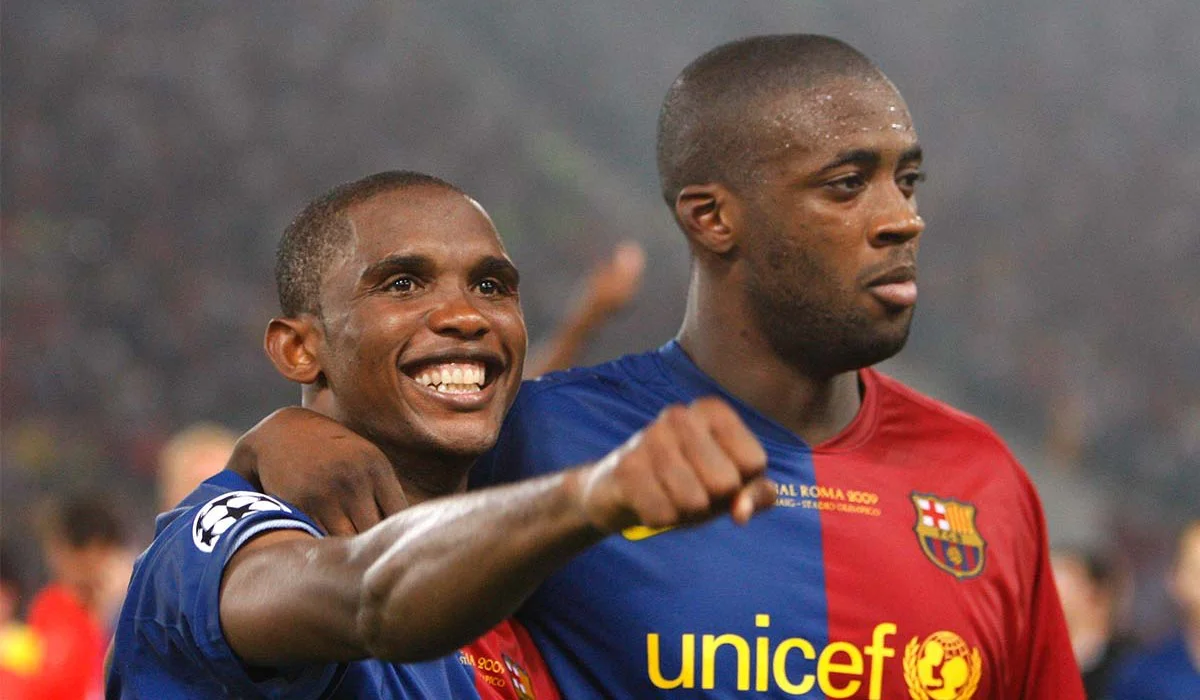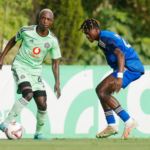Samuel Eto’o and Yaya Touré, hailing from Cameroon and Ivory Coast respectively, stand as towering figures in the realm of African football. Despite their different paths, these two legends share several striking similarities that have left an indelible mark on the sport’s history.
Eto’o and Touré have both enjoyed illustrious careers that spanned continents and saw them achieve remarkable feats.
Their impact on the game is underscored by five notable parallels in their careers, ranging from individual accolades to leadership roles, triumphs in major tournaments, and their time at one of the world’s most prestigious football clubs.
One of the most significant achievements in both players’ careers is their collection of African Ballon d’Or awards. Samuel Eto’o and Yaya Touré each claimed this prestigious title four times.
Eto’o, a prolific scorer in the 2000s, clinched his first award at the CAF Awards in 2003. He went on to win it again in 2004 and 2005, before taking a brief hiatus and securing his fourth in 2010.
Yaya Touré, meanwhile, dominated the award scene from 2011 to 2014, establishing a reign that matched Eto’o’s. This shared record highlights their dominance in African football during their respective eras.
Both Eto’o and Touré have worn the captain’s armband for their national teams, though their tenures were not without controversy.
Samuel Eto’o was appointed captain of the Indomitable Lions in 2009, a decision that marked the end of Rigobert Song’s era and led to internal strife.
The tension peaked during the 2010 World Cup and the Africa Cup of Nations, necessitating a crisis meeting in 2012 to resolve the discord.
Similarly, Yaya Touré’s captaincy of the Elephants during the 2014 World Cup sparked controversy.
He led the team in the first two matches, relegating the iconic Didier Drogba to the bench, a move that divided fans and exacerbated existing tensions between the two stars.
This period highlighted the challenges both players faced in balancing leadership roles with team dynamics.
Success in the Africa Cup of Nations (AFCON) is another shared highlight. Samuel Eto’o lifted the trophy twice, in 2000 and 2002, cementing his status as a key figure in Cameroon’s football history.
Yaya Touré, after years of near misses, finally secured his AFCON title in 2015 with Ivory Coast, fulfilling a long-awaited dream for his nation’s golden generation.
Both Eto’o and Touré made significant contributions to FC Barcelona’s dominance in the late 2000s. Eto’o joined the Catalan giants in 2004, and Touré followed in 2007.
Together, they were instrumental in Barcelona’s historic sextuple in the 2008-2009 season, where the club won six major trophies: the Champions League, La Liga, the Spanish Cup, the Club World Cup, the Spanish Super Cup, and the UEFA Super Cup.
This unprecedented achievement remains a testament to their exceptional talent and teamwork.
Eto’o and Touré also share the distinction of retiring from international football at the age of 33. Samuel Eto’o announced his retirement after the 2014 World Cup in Brazil, bringing an end to a storied international career.
Yaya Touré followed suit on September 20, 2016, declaring his retirement on social media. Both players left their national teams at a relatively young age, having contributed significantly to their countries’ footballing successes.
In conclusion, Samuel Eto’o and Yaya Touré, despite their different backgrounds and positions on the field, share a remarkable legacy characterized by individual brilliance, leadership, international triumphs, club success, and a well-timed retirement from international football.
Their careers have left an enduring impact on African and global football, inspiring future generations of players.












